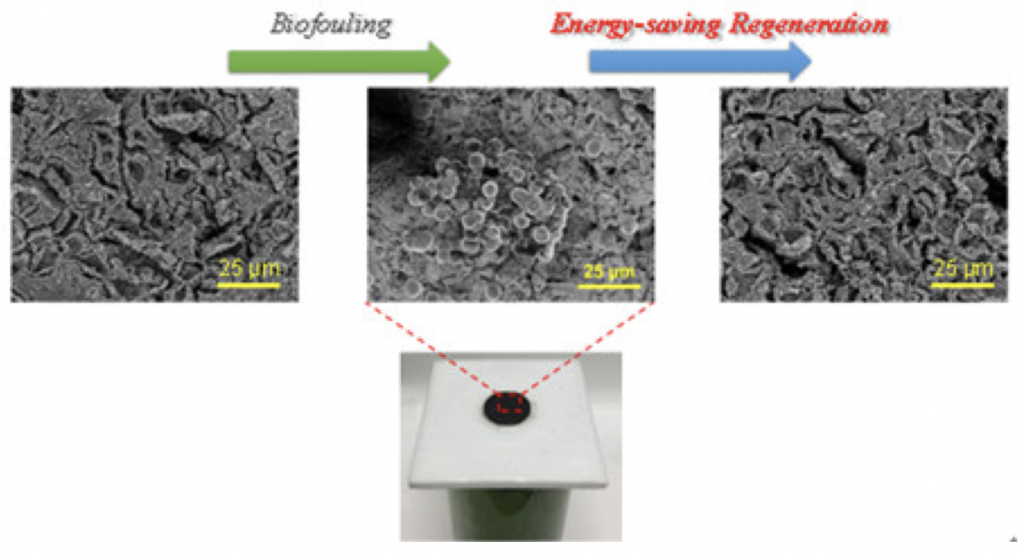Biological pollutants such as algae, or organic pollutants cause pollution of photothermal films in solar-driven water evaporation. They can be removed by high-temperature degradation, resulting in considerable energy consumption. The group around JIANG Heqing at CAS Qingdao Institute of Bio-Energy and Environmental Biotechnology (QIBEBT) has used the catalytic and photothermal properties of cobalt-based perovskite for a multifunctional perovskite oxide porous membrane. In tests using algae and melamine as pollutants, the La0.7Sr0.3CoO3 (LSCO) porous membrane significantly reduced the combustion decomposition temperature of the pollutants attached to it, reducing the energy consumption of the porous membrane during the combustion process. Performance could be almost completely restored after multiple membrane regeneration cycles.
CAS news release, February 19, 2020

